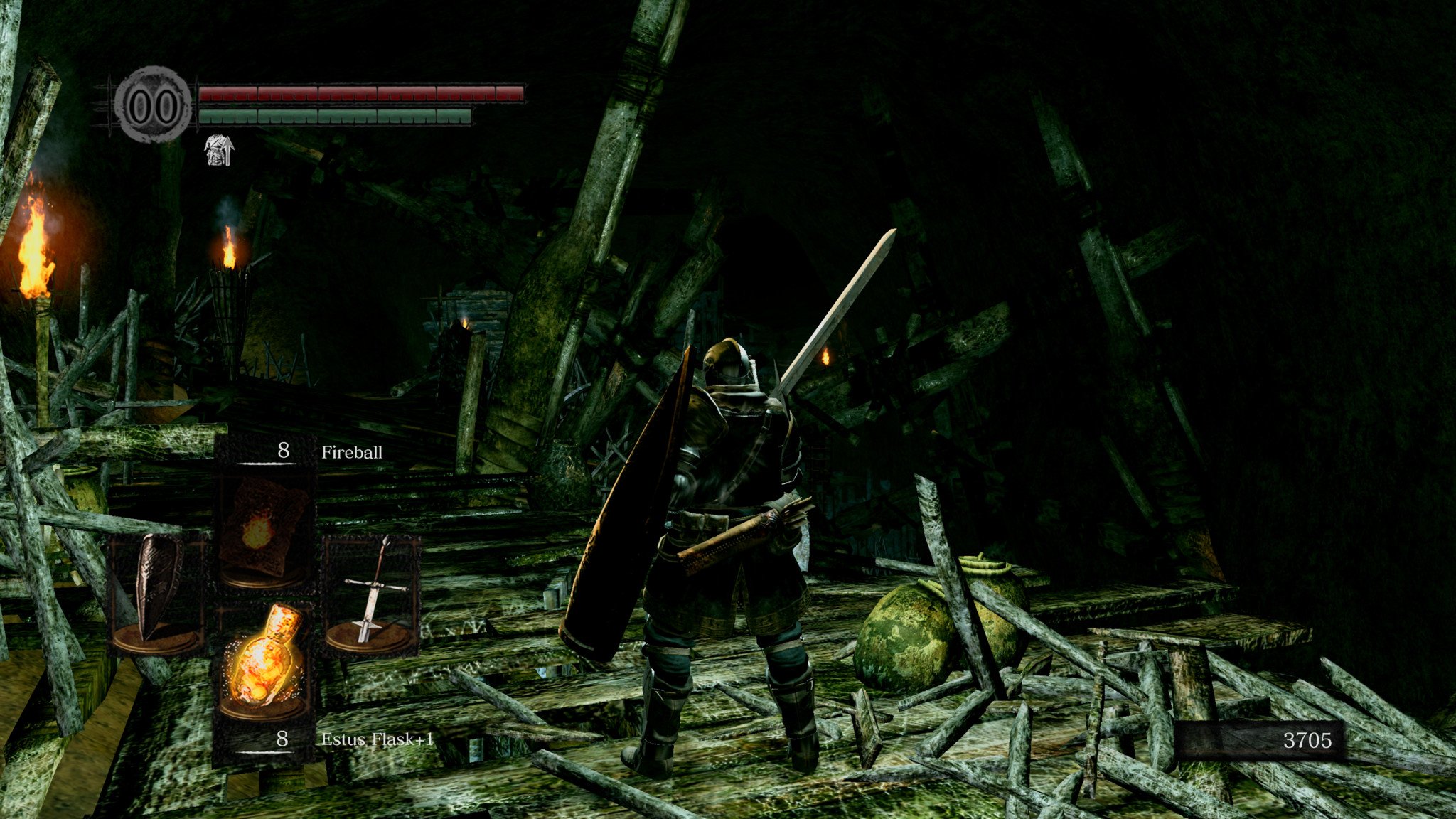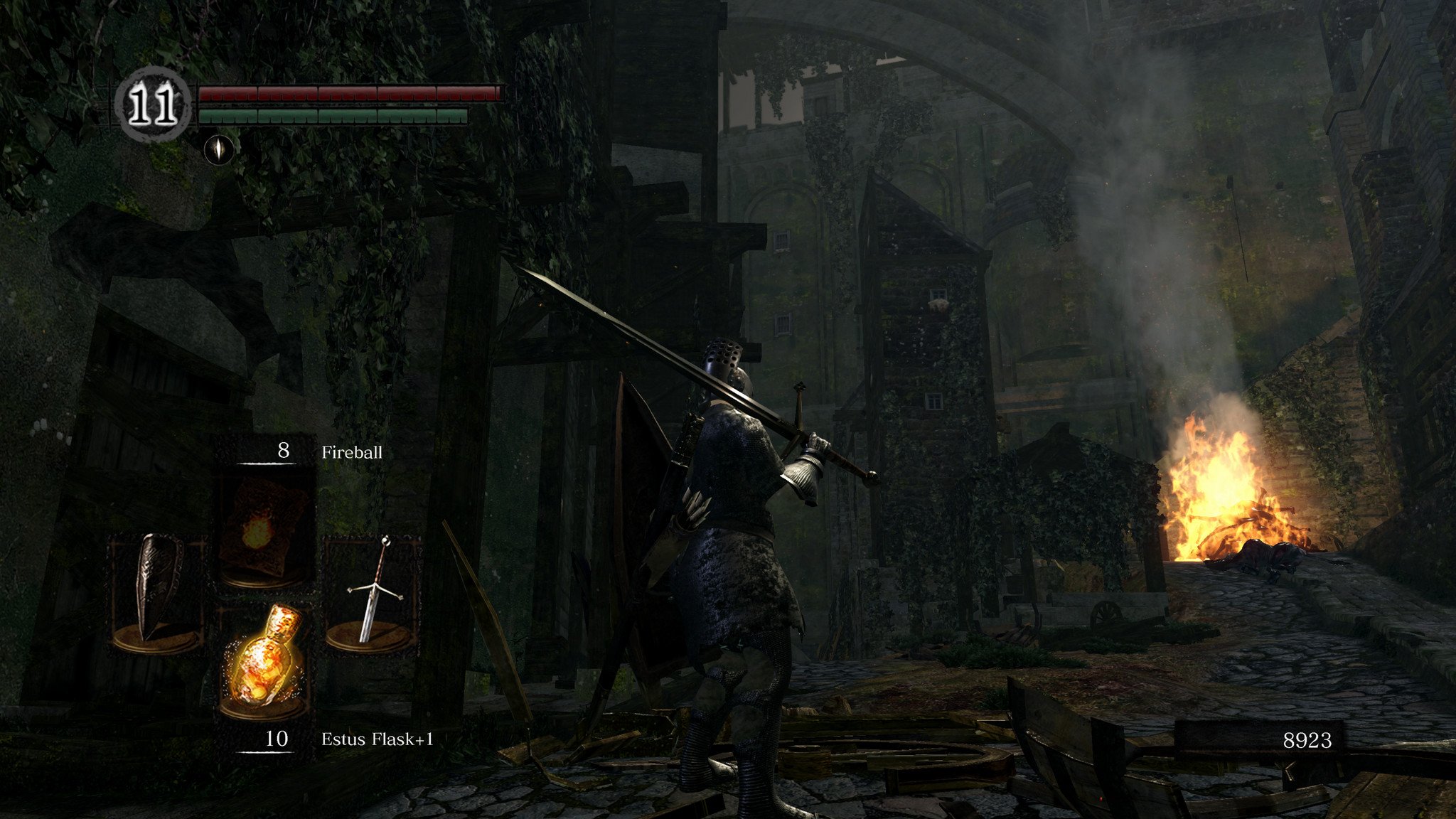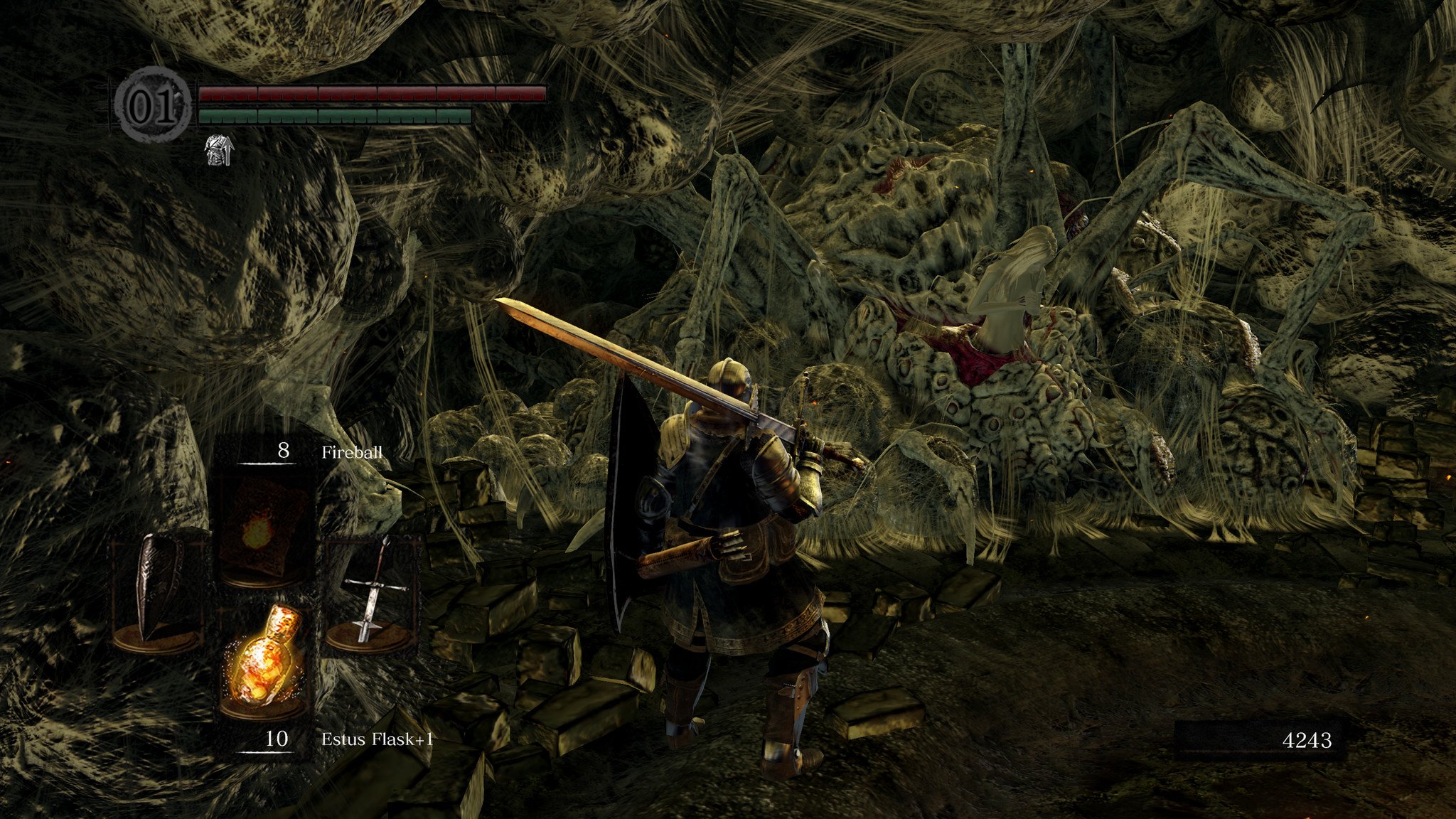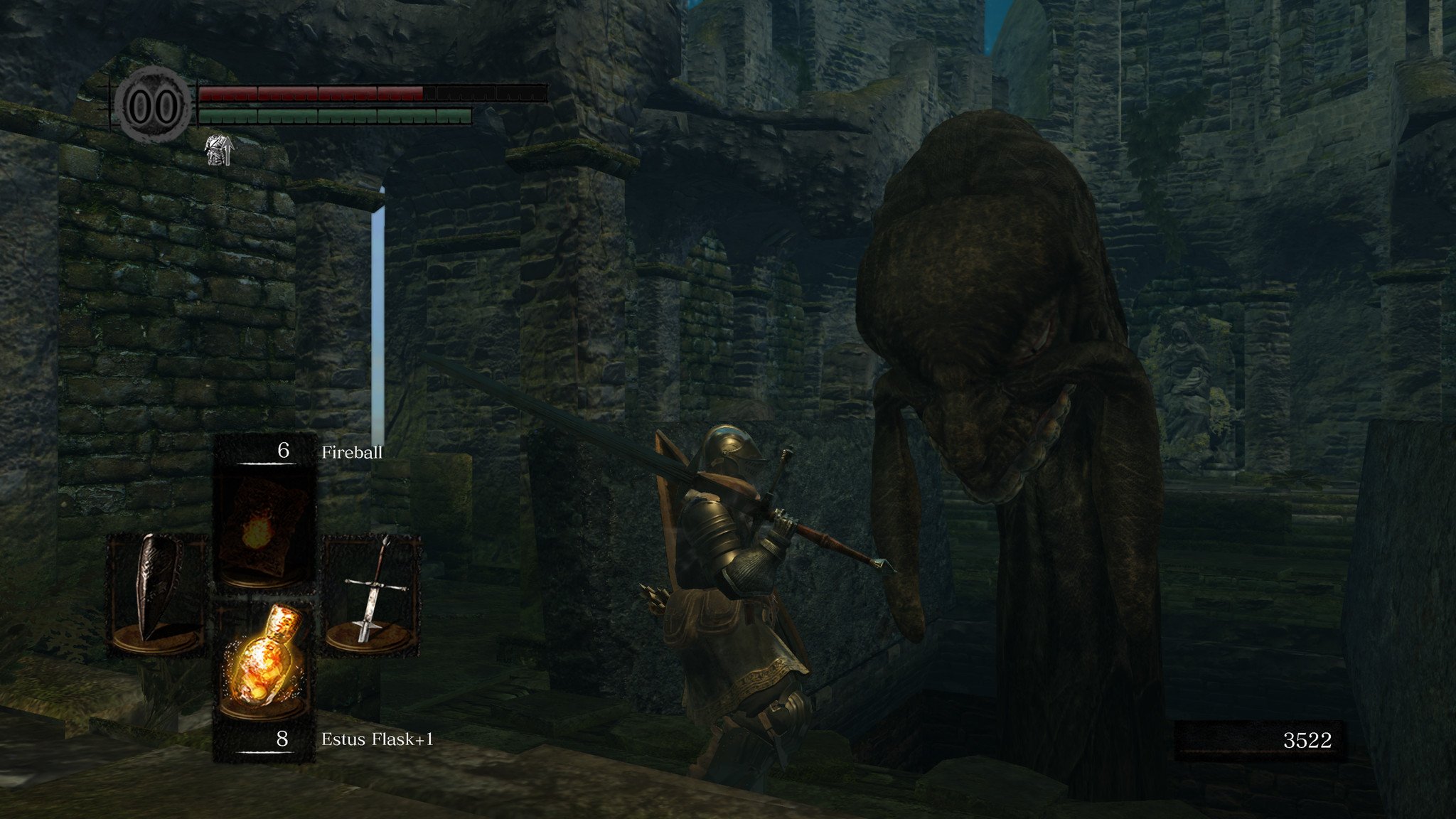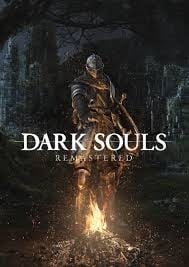10 years late, I have fallen in love with Dark Souls, and you can too
Dark Souls' brilliance is grossly incandescent.
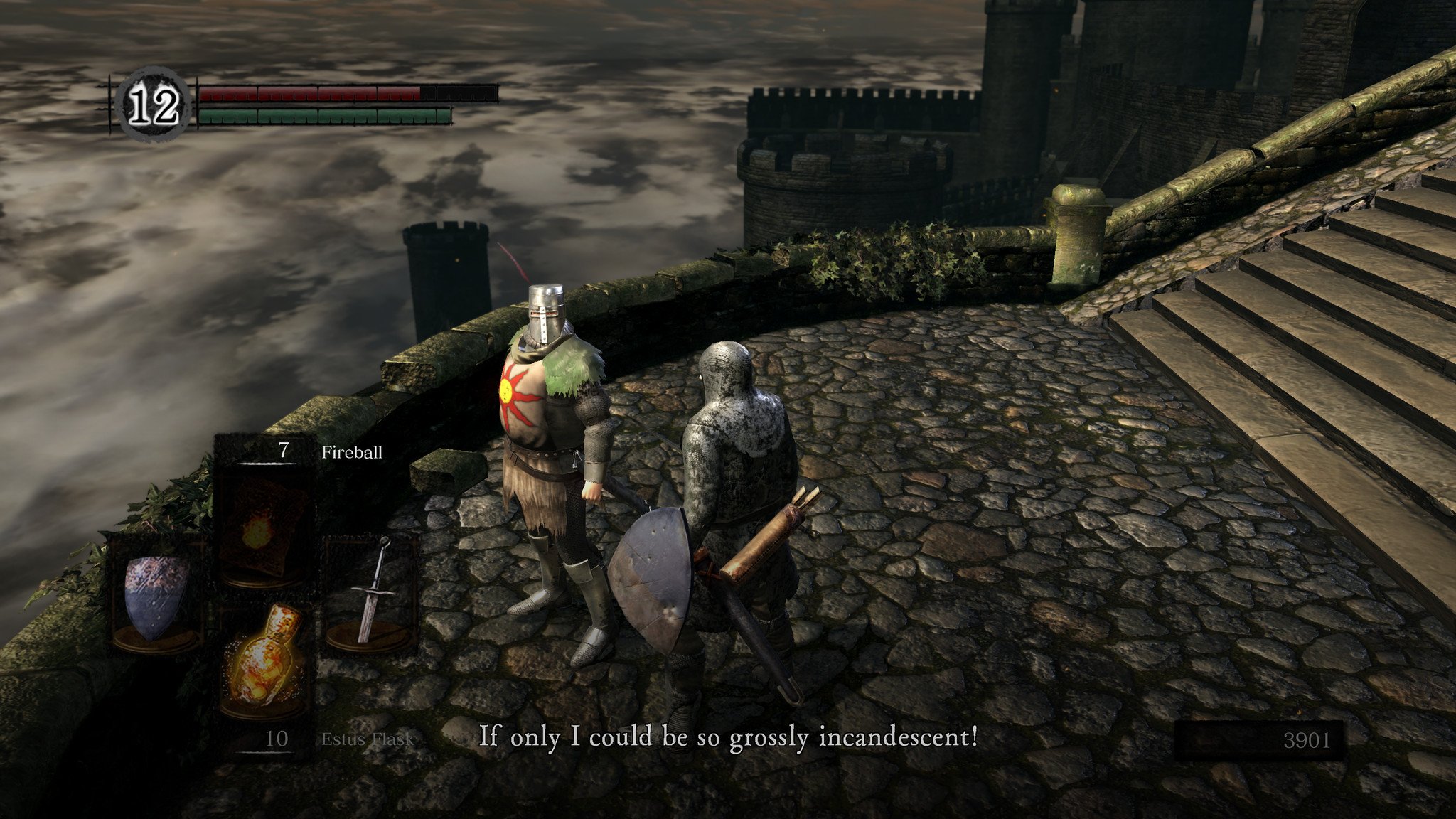
All the latest news, reviews, and guides for Windows and Xbox diehards.
You are now subscribed
Your newsletter sign-up was successful
Dark Souls is something of a controversial topic, owing to its perceived difficulty. With some detractors claiming it's difficult for the sake of it, Dark Souls almost takes on this mythical shroud that only the most elite, hardC0RE gamers can contend with its punishing gameplay. Ten years after its initial launch, I am finding that isn't actually the case.
I am by no means a hardc0RE elite gamer, at least not as I approach 40. Back in the day I'd grind the hardest raid difficulty tiers in World of Warcraft and achieve server-first boss kills, and even further back, put literal thousands of hours into Unreal Tournament 99, with a near-sixth sense awareness of the respawn timer on the Shield Belt. Those days are pretty long gone, sadly. I have ear hair, y'know.
Yet still, as my ability to stick to a single game for any length of serious time becomes diminished for whatever reason, I've been falling in love with Dark Souls, a game I'd always assumed would be too difficult for me to mete out. If you're someone who, like me, always thought Dark Souls looked like a game you should enjoy, I'm here to tell you the game isn't as difficult as you might think, and in fact, it's actually incredibly fair, throwing you tons of ways you can make things easier for yourself.
I wanted to write down some of my experiences with Dark Souls so far, in tribute to what I already feel like could end up being one of my picks for best Xbox games of all time.
Demystifying Dark Souls
When I started tweeting about Dark Souls recently, I realized that I wasn't alone in my assumptions about the game. Many of the replies in some of my clip threads run along the same thought patterns of, "I bet this game is too hard for me," or "I tried it, and found it to be too difficult," and so on. It's true, Dark Souls' introductory few hours are almost sacrilegious in their design, aggressively shrugging off the hand-holding tutorial sequences that are popular in modern games.
Thanks to Monster Hunter, I'd unwittingly somewhat learned a bit more about how Dark Souls itself plays in the process.
Right from the off, even the most basic enemies can kill you in mere seconds, and the first boss is a gigantic beast wielding a massive club, that shreds the environment in massive arcs. It's all part of the show, though. It calls back to the way games used to be, in the '90s, loathe to hold player's hands, but eager to support the observant and patient.
What fans often say is ultimately true; Dark Souls I would discover is an aggressively fair game. And it's perhaps only since becoming addicted to Monster Hunter World that some of Dark Souls' design philosophy really click for me. Until Monster Hunter, I'd become relatively complacent with modern gaming in general, which seems all too often reluctant to punish the player too harshly. Monster Hunter as its name suggests is designed wholly around monster hunting. Since the game doesn't really revolve around a traditional level-based story structure, it hinges entirely on boss battles, essentially. Across 800 hours' worth of Monster Hunter World playtime, I ended up learning how to play a very different style of game than what I'd gotten used to from Western devs — with stamina meter management, dodging with invincibility animation frames (i-frames), and learning to time the speed of my attacks, weaving around monster attack signals.
All the latest news, reviews, and guides for Windows and Xbox diehards.
I think it's probably fair to say that Monster Hunter World eases you into its gameplay style a little more gently than Dark Souls does. But, thanks to Monster Hunter, I'd unwittingly somewhat learned a bit more about how Dark Souls itself plays in the process.
Dark Souls' combat shares superficial similarities to Monster Hunter World, in that stamina management, is incredibly important, alongside learning the animation speed of your specific weapons. Being acutely aware of how quickly an attack will land in relation to how quickly you'll be on the receiving end of an attack is a skill you learn to live with across both games, across multiple types of weapons.
Each game has a large array of weapons with very unique combos and attack patterns, and each game will punish players who don't take the time to respect the relationship between an attack, stamina consumption, and defense. In some ways, I'd argue that Monster Hunter World is often even more punishing, due to the erratic and oft-random ways monsters occasionally behave in the game. While I've not seen everything Dark Souls has to offer just yet, arriving at the city of Anor Londo, I've found the boss battles to be incredibly fair to the player, with relatively predictable attack patterns, and large cues that telegraph incoming attacks.
Even beyond the design of the game, which is impeccable, Dark Souls rewards explorers like no other game I've played.
Dark Souls wants you to win
In many modern "open world" games, developers think that finding a text file or an audio log is a decent enough reward for exploration, but after playing Dark Souls, I'm not sure that's going to satisfy me anymore.
You're a visitor of a strange and haunted land, and every corner holds either danger or riches in equal measure.
Dark Souls 1 is a game with some of the best environmental design work I've ever seen. A massive, sprawling labyrinth of intersecting, intertwining fortresses and structures, filled to the brim with uniquely horrific monsters and damned souls. It's almost Metroidvania-like in its construction, rewarding players with shortcuts to previous areas to make the journey easier, layering on satisfaction in a way loot alone simply doesn't do. Even the loot in Dark Souls feels meticulously placed, designed to shape your playthrough and guide your character builds without explicitly telling you what to do. And a lot of those character builds will come around as a direct result of exploration.
Dark Souls is also a game that, for the most part, doesn't gate the player. You can practically go anywhere, right from the beginning, but the game does give you a sense of direction as long as you're paying attention. There's no map, and no quest markers, though, essentially leaving you to your own devices over how you want to tackle the way forward.
At the beginning, you're told to ring two bells, one at the top of a church, and one down below underground. There are NPCs scattered throughout, driven mad apparently by the world's purgatorial state, who can provide additional context and worldly lore. The sense of vulnerability that comes through the game's high-stakes combat permeates into the story and exploration too; you're a visitor of a strange and haunted land, and every corner holds either danger or riches in equal measure. It's those riches that will drive you forward, also.
Upgrading your character in Dark Souls is a gradual process, incrementally raising stats here and there, adding +1 to your items when the materials present themselves. But every now and then, you'll happen upon an item that will completely change your outlook and prosperity. After defeating a very angry knight in a tower basement, I received a ring that massively improved how equipment impacted my character's mobility, allowing me to use heavier armor and weapons.
Therein lies the excitement that Dark Souls' world brings: risk and reward, in equal measure.
I ventured well off the beaten path into a forest, and found a shield that was more than twice as potent as the one I was carrying. In a graveyard, I discovered a powerful two-handed sword guarded by a militia of re-animated skeletons. More to the point, none of these items was gated either, you can potentially grab these right as soon as you leave the initial tutorial area, as long as you're willing to face the higher-level enemies guarding them.
By daring to explore, I found that I was occasionally discovering Dark Souls' gentler side. These items make the game far more accessible to play, particularly for newcomers. They reward those who were daring enough to go and hunt them down, or indeed, look up a guide on how to get them early. However, exploration can also bring plenty of risk. At one point, I leapt into a mysterious hole in the ground, only to be dumped into a cage with a giant and very hungry rat monster. Therein lies the excitement that Dark Souls' world brings: risk and reward, in equal measure.
Dark Souls has been out for 10 years at this point, and there's a huge wealth of content online that can help you ease into the universe and get to grips with the gameplay. If, like me, you made assumptions about how the game worked based on the first few hours of play, there are tons of tricks interwoven into the game's fabric to make it less punishing on yourself. The game's arsenal of magical items are designed directly to help you win, but instead of simply handing you the win, it wants to reward you for discovering the method yourself.
Dark Souls is a revelation
In an era of battle passes, free to play, pay to win, microtransactions, and "games as a service," I found that the thing I'm loving the most about Dark Souls is the fact it's just a video game. It's not a service, it doesn't want me to "engage" forever, and it isn't using artificial psychological trickery to soak up my "engagement" — the game's art, the monster designs, the music, its deceptive facade of minimalism hiding what seems to be limitless depth do that by itself, and it's easy to see now why the game is held in such high regard.
If you've ever looked at these games and thought, "I wish I could enjoy these," I implore you to give it another go.
Dark Souls has been a magical experience thus far, literally, and to anyone who, like me, looked at the games and felt like they seemed cool but might be a bit out of scope, I'd urge you to look again. Try to use a beginner's build guide on YouTube — but I'd also argue not to look too deeply for a full-blown guide, because the sense of discovery is half of the fun. Choose a weapon style and really learn how it works between the different weapon swings, blocking, riposte attacks, elevation attacks, and back attacks. Learn what the stats do (INT doesn't increase pyromancy damage, as I found out the hard way), and if you get stuck, you can always grind some souls to raise your level and equipment stats a bit.
I'm just happy to have found a game to really deeply fall in love with again. Sometimes I wonder if I'm getting jaded, and that video games aren't as fun for me as they used to be. Dark Souls reminded me that I'm not getting jaded, it's just that modern AAA games are all too often just, well, bland. I feel like through Monster Hunter and now Dark Souls, a whole new world of games and other "Soulslikes" just opened up to me to explore — ahead of Elden Ring itself. And if you've ever looked at these games and thought, "I wish I could enjoy these," I implore you to give it another go. You may find they're a lot fairer than you might think.

Jez Corden is the Executive Editor at Windows Central, focusing primarily on all things Xbox and gaming. Jez is known for breaking exclusive news and analysis as relates to the Microsoft ecosystem — while being powered by tea. Follow on X.com/JezCorden and tune in to the XB2 Podcast, all about, you guessed it, Xbox!
